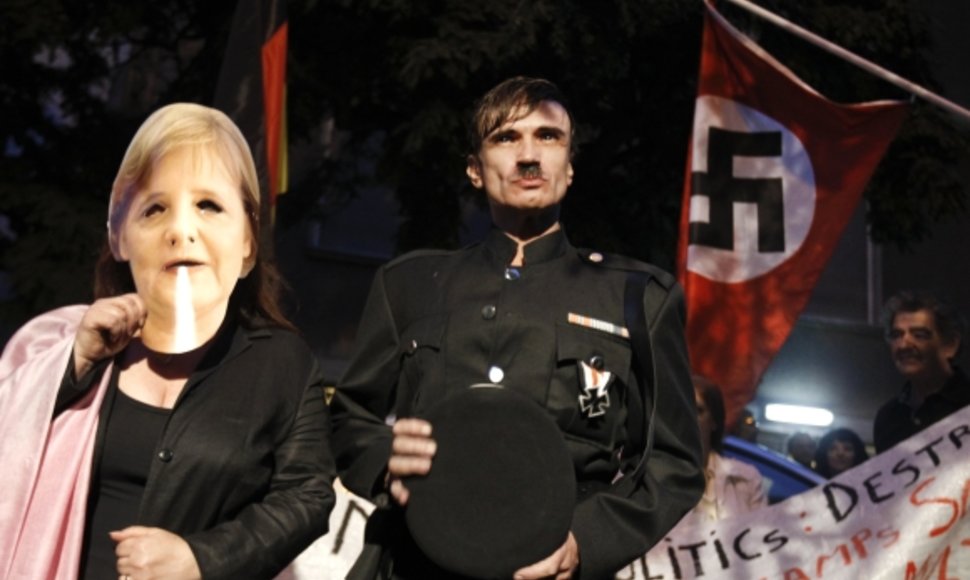“A noi Schettino, a voi Auschwitz.” So wrote the Italian newspaper Il Giornale recently: “We have Schettino, you have Auschwitz”, responding to a similarly subtle Spiegel Online criticism of the cowardly captain of the Costa Concordia, who was called a “typical Italian”. The riposte the Italian paper had in mind was: “You Germans just keep your mouths shut – you have the Holocaust to answer for!”
Now, one might say that Il Giornale is a populist rightwing newspaper, from Berlusconi’s publishing empire no less, and so not to be taken too seriously. One could also take some comfort from the fact that Nazi comparisons have always been trotted out from time to time against Germans. But at the moment the comparisons are accumulating around Europe. It's a discourse we hear in Greece daily, often formulated in an even more virulent manner.
At a book reading in Portugal the sensible East German writer Ingo Schulze was even asked if the Germans intended to take with the euro what they had failed to take with their panzers, i.e. become the masters of the continent. From Greece we can hear the same sort of remarks every day, often put more dramatically.
Elsewhere the reproach is dressed up with more gentility, when for example Germany’s current austerity policy is compared with that of Reich Chancellor Brüning, whose successor was Adolf Hitler. Frequently, too, German’s “special path” is brought up, as when the Merkel government fails to print as much money as the others are demanding. The so-often quoted “special path” ends where, historically? In Auschwitz, of course. Thus is the circle closed.
We must not let ourselves be intimidated
It does not take long, really, to work out the riddle of why the Nazi comparisons are being flung about so thick and fast. It’s because for the first time since 1945 Germany is back at full strength, not because it wanted to be, but because the European debt crisis has left it the economically strongest and politically most powerful country in Europe. German interests now reach deeply into the internal affairs of other states.
Gradually the country is taking on a role in Europe similar to the role the U.S. long played for the entire world: as a power that used its power, and sometimes abused it, that was to blame for everything, that had to rescue everyone, and that had to put up with insults for how it did it.
But there was one thing you could never accuse the Americans of: sending six million Jews to their deaths and plunging half the world into war. When it comes to the Germans, the humanly understandable and often justified ranting against the biggest power too often takes on a different, conversation-killing tone.
How should one, as a German, handle it? Ingo Schulze got outraged and offended, as he self-critically admitted. His reaction was definitely the wrong one for that reason alone, because it was precisely what his audience wanted. Secondly, it is surely wrong to respond with German arrogance, as Volker Kauder, parliamentary leader of the Christian Democratic Union, did when he declared that “Europe is speaking German”; only the word “again” was missing.
Thirdly, we must not let ourselves be intimidated by comparisons to the Nazis. The notion of the “special path”, or German exceptionalism, must not lead a German government either to cave in or to insist now more than ever on getting its own way – especially since we are all aware that Auschwitz gets deployed as a moral lever in political conflicts. A friendly imperviousness to being pressured, sometimes an unoffended rebuff, are therefore the most judicious responses. And then we can get back to the substantive issues, like money or military intervention.
Continue reading at presseurop.eu












